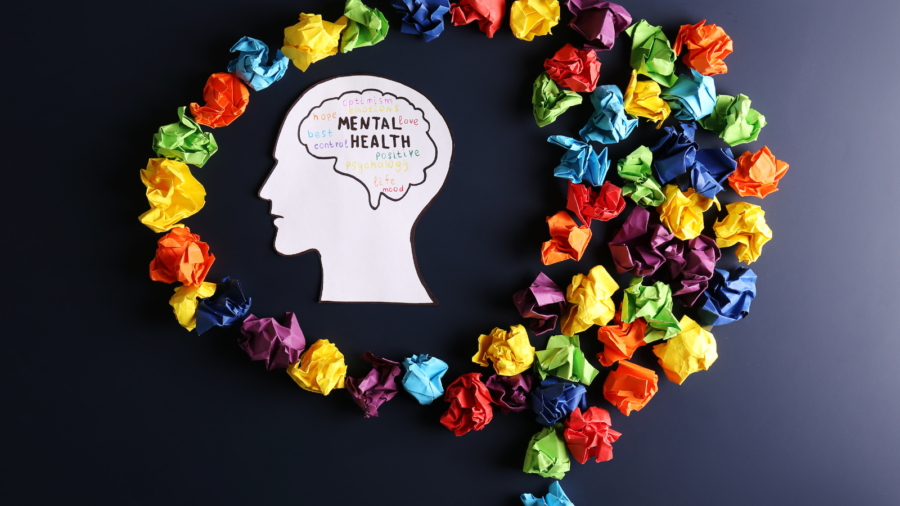Mental health simply refers to be emotional social as well as psychological functioning of an individual. It shows the ability off to cope with stress why and maintaining social contribution to the society. Mental health is essential for over all help and impacts on people’s thinking, feeling and how they act to certain thing. Mental health is far most
neglected topic in our society. Good mental health is very much important to correct a sense of well being in positive relationship in a person.
The importance of mental health in all well being can never be neglected or overstated as: mental health and physical health are interconnected as bad mental health leads to many health diseases such as impact on immune system, cardiovascular system and can damage physical appearance and confidence too. Good mental health allow people to bounce with trauma , stress and lead to work more efficiently. We all know healthy mind contribute to better productivity and creativity in work as well as daily routine. Prioritizing mental health can reduce the risk of developing mental health disorders and problems. Good mental health give positive self image, self confidence and allow individual to pursue their goals and dreams with confidence. Overall prioritizing mental health is essential for achievement maintaining well being.
Common mental health disorder those which can be frequently seen in many people and can be diagnosed easily which disturbs the individuals daily life. Depression and anxiety are some of the major mental health disorder which can destroyed a person’s life completely. Depression simply means a state of mind which negatively effect how a
individual think, feel or act. If you need to various physical as well as a mostly problem and can decrease productivity of an individual. Meanwhile anxiety is most common and is a motion which help us to respond threat and challenges. Both depression and anxiety are treatable mental health disorders. Panic attack is again one of the major mental has the disorder which can be simply defined as the sudden discomfort or fear within minutes. It often occur unexpected or in response to specific trigger.
Mental health disorder can be biological, social, environmental or psychological. It can be genetic if family history of mental disorder than increase the risk of developing mental disorder. Even expose of certain infection during pregnancy can increase the risk of mental disorder. Even childhood experience is of trauma, fear or abuse and impressive rescue of mental disorder in adult. Significant change in financial problem, relationship status can also trigger mental health and disorder. Even some chronic health diseases such a cancer or cardiovascular diseases can increase their risk of developing mental disorder. Lack of social support or cultural and societal expectation,discrimination or drama can increase the risk of mental disorder.

The importance of early detection and treatment for mental health disorders cannot be overstated. Early treatment can prevent the progression of symptoms, reduce the severity of symptoms, and increase the likelihood of recovery. It can prevent the development of more severe mental health disorders. Early intervention can help individual improve their ability to work daily and more efficiently. It can also reduce the stigma associated with mental health disorders by promoting awareness, understanding, and acceptance, and by encouraging individuals to seek help and support without fear of judgment or discrimination.
Stigma around mental health can often results to negative impact, discrimination, misunderstanding toward and individuals mental health which often results to negative step. Lack of awareness, understanding, and education about mental health can lead to misconceptions, myths, and stereotypes, such as the belief that mental health disorders are a sign of weakness, character flaws, or personal failures.stereotypes, and negative labels can lead to stigma, discrimination, and prejudice. Blaming individuals for their mental health disorders, attributing their symptoms to personal weaknesses, moral failings, or character flaws, and denying the biological, psychological, and environmental factors contributing to mental health can lead to guilt, shame, and selfstigma. Addressing and challenging the stigma surrounding mental health is crucial to promoting awareness, understanding, acceptance, and compassion, encouraging open and honest conversations, reducing discrimination and prejudice, and creating supportive, inclusive, and empathetic communities and societies. Education, advocacy, awareness-raising campaigns, community engagement, and peer support are essential strategies to challenge and change attitudes, beliefs, and behaviors, and combat stigma and discrimination associated with mental health.
Prioritizing mental health is crucial for overall well-being, quality of life, and holistic health, enhancing resilience, coping, and self-awareness, preventing mental health problems and complications, reducing stigma and discrimination. It is important to prioritize mental health, seek help and support when needed, engage in self-care and self-management strategies, and promote mental health awareness, education, and advocacy to create a positive, proactive, and empowering approach to mental health and well-being





Add a Comment